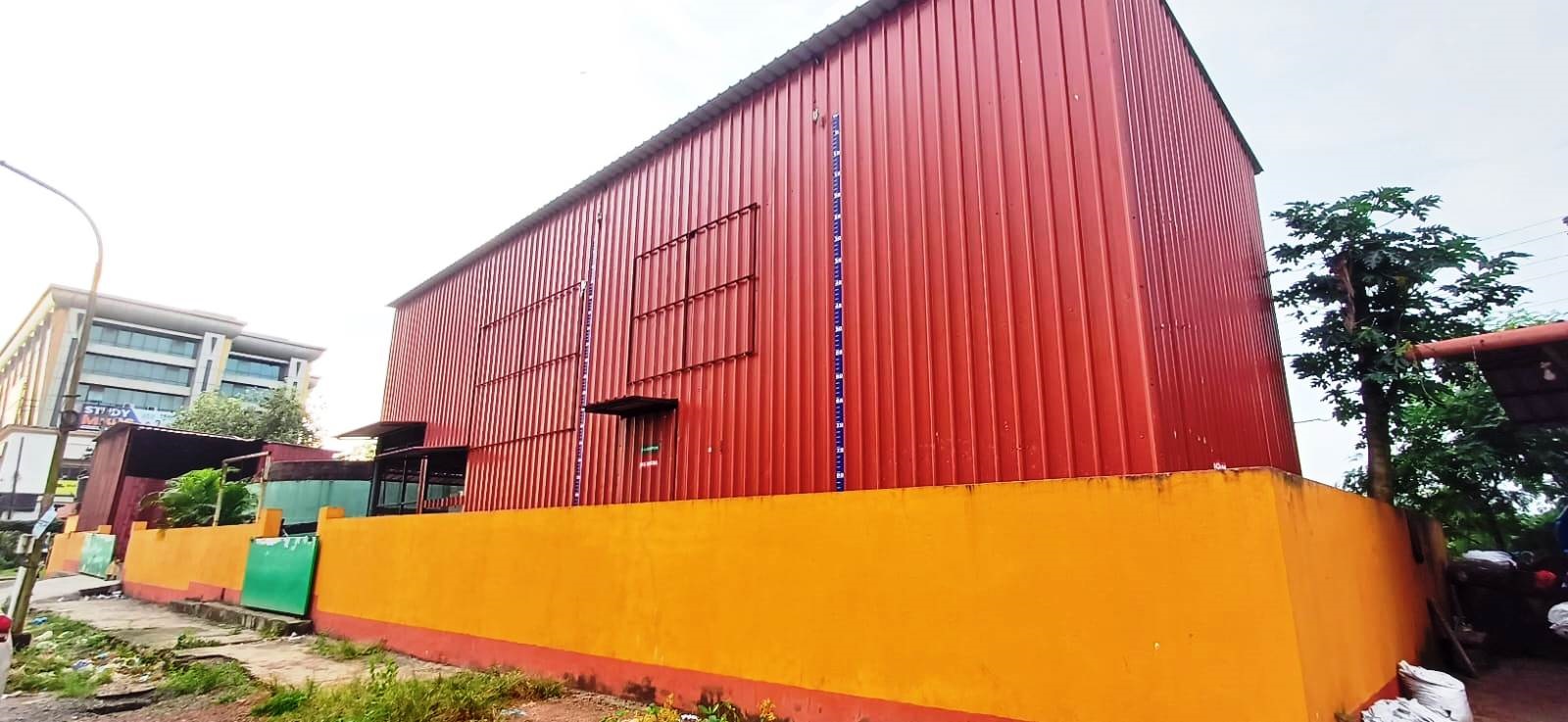Started three years back, non-operational plant set to be dismantled

The 5TPD bio-methanation plant at the SGPDA market entrance is down and out and is set to be dismantled.
MARGAO
Shoppers to the mega SGPDA retail market or visitors to the adjoining Osia Commercial complex at Margao will suddenly realise that the imposing waste treatment plant decked up with a fresh coat of paint right at the market entrance is no longer in operation.
For, down and out since August last, the bio-methanation plant set up by the Margao Municipal Council at the SGPDA market has joined the list of players roped in by the civic body over the last 25 years to address the burning waste treatment problem plaguing the commercial capital, but in vain.
That’s not all. Set up with much fanfare on November 4, 2021, the authorities as well as the political leadership are now talking about plans to dismantle the bio-methanation plant even before it could complete three years of operations. The plant had stopped functioning after the Consent to Operate issued by the Goa State Pollution Control Board (GSPCB) had expired, coupled with the fact that the GSPCB's directions to discontinue operations of the plant had come into effect. Sources in the Margao Municipal Council informed that it’s just a matter of time before the bio-methanation plant is dismantled and lifted away.
In fact, Margao MLA Digambar Kamat, whose group of BJP-backed City Fathers is ruling the Margao Municipal Council, was categorical in saying the plant will soon be dismantled and taken away from the SGPDA market.
“The functioning of the bio-methanation plant has thrown up a host of issues, especially relating to slurry and its disposal. There were complaints that the slurry is discharged in the adjoining fields in the absence of an Effluent Treatment Plant. The Pollution Control Board’s Consent to Operate has also expired, and the Board has told the MMC to stop its operations,” Kamat said.
He added: “The bio-methanation plant will be dismantled and lifted away. The government is in the process of setting up a waste treatment plant at Sonsodo. The setting up of a new plant is under the consideration of the government.”
Inaugurated on November 4, 2021, by the Margao Municipal Council in the presence of MLAs Digambar Kamat, Vijai Sardesai, then MMC Chairperson Lyndon Pereira, and others, the bio-methanation technology was dubbed an answer to the solid waste management issues plaguing the commercial capital in particular and the state in general.
In fact, the bio-methanation technology was welcomed with open arms three years ago, more so since the Margao Municipality had a bitter experience with its tie-ups with private players to address the waste treatment imbroglio, beginning with the Pune-based Komex Pvt Ltd in the late 90s.
The Margao Municipal Council had in 2021 tendered a total of three 5TPD bio-methanation plants, each costing Rs 2.4 crore. Of the three, the MMC had set up the first plant at the SGPDA market, and the remaining two were to follow depending on the success of the first plant.
Project promised much, but delivered nothing
How much revenue has the Margao Municipal body earned from the 5TPD bio-methanation plant set up at the SGPDA mega market complex in the last three years?
When the plant was inaugurated three years ago on November 4, 2021, the promoters of the technology had announced that the bio-methanation plant would produce around 450 units of power and also churn out bio-fertiliser every day. In fact, the promoters had announced that the MMC could be richer by around Rs 10,000 a day through the sale of power and bio-fertiliser.
It was further announced that the electricity generated by the 5TPD plant could illuminate the street lights in the SGPDA complex if the MMC or the PDA supported the electrification. Three years down the line and with the plant down and out, MMC officials said that although the plant had generated power through the process, the same was used to run the operations.
“There was a delay on the part of the MMC initially in connecting the plant to the power grid. Hence, the civic body did not benefit on the revenue front through the sale of the power generated by the plant,” the official said.
As far as the bio-fertiliser is concerned, the digested slurry generated by the process virtually sealed the plant's fate, since the slurry was discharged in the adjoining fields, leaving the water bodies contaminated.